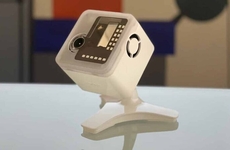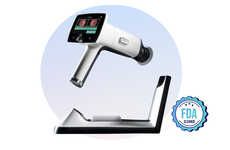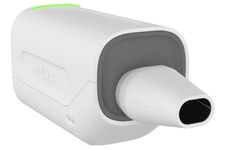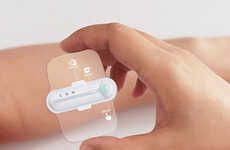
The 'Aria' Malaria Parasite Detector Decentralizes Testing
Michael Hemsworth — December 4, 2019 — Tech
References: yankodesign
The conceptual 'Aria' malaria parasite detector has been designed by Detroit-based product designer Minwoo Lee as a piece of healthcare equipment that could help to decentralize testing and enhance care in rural communities. The unit works by harnessing the power of infrared light and can detect parasites by testing for their molecular vibrations. Users can simply place a blood sample into the unit to start the testing process and determine whether or not the patient has contracted malaria.
The conceptual 'Aria' malaria parasite detector could effectively help to transform healthcare protocols in remote locations by encouraging continuous testing and allowing the disease to be detected as soon as possible. The compact design of the unit also means it could be easily transported to extremely rural communities.
The conceptual 'Aria' malaria parasite detector could effectively help to transform healthcare protocols in remote locations by encouraging continuous testing and allowing the disease to be detected as soon as possible. The compact design of the unit also means it could be easily transported to extremely rural communities.
Trend Themes
1. Decentralized Healthcare - The 'Aria' malaria parasite detector has the potential to decentralize testing and enhance care in rural communities.
2. Infrared Diagnostics - The 'Aria' malaria parasite detector uses infrared light to detect parasites, showcasing the potential of this technology in other medical applications.
3. Continuous Testing - The 'Aria' malaria parasite detector encourages continuous testing, which could become a trend in remote healthcare protocols for catching diseases in their early stages.
Industry Implications
1. Medical Devices - Medical device companies could explore opportunities to develop infrared-powered diagnostic tools for detecting various diseases in rural areas.
2. Healthcare Technology - Healthcare technology companies could invest in the development of decentralized testing equipment, bringing better health services to remote areas.
3. Rural Healthcare - Rural healthcare providers could invest in infrared-powered diagnostic equipment like the 'Aria' malaria parasite detector to improve healthcare delivery to their communities.
4.5
Score
Popularity
Activity
Freshness























